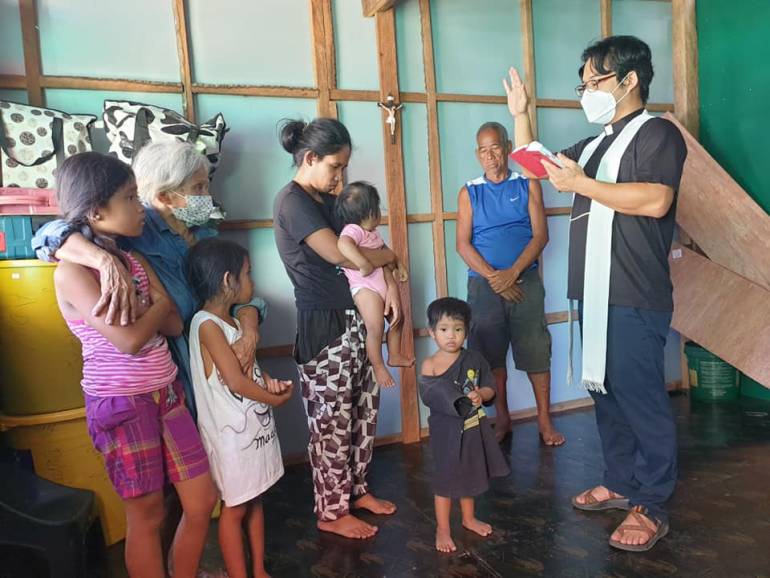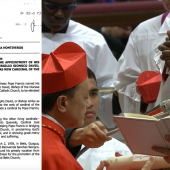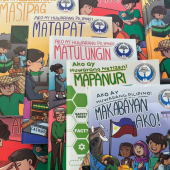Korean priest builds houses for poor in Philippines

The ongoing Covid-19 pandemic has been a ‘blessing in disguise’ for a South Korean missionary working in the Philippines.
During the pre-pandemic time, Father Andreas Chang, a priest from the Archdiocese of Seoul, who works as a missionary in the diocese of Kaloocan, north of Manila, used to hold a series of medical missions for various poor communities.
A group of health professionals (doctors, nurses, and other allied medical personnel) from South Korea would come for the periodic medical missions in Malabon City, where the priest runs St. Joseph’s Clinic for the poor.
Caloocan is a hardscrabble and industrial type of place with a population of 1.5 million. Most habitats come from working-class backgrounds.
The diocese of Kalookan includes Malabon City, Navotas City, and the southern portion of Caloocan City. Pope St. John Paul II created the diocese on June 28, 2003.
“Here in the Joseph’s Clinic, we have four major projects—medical support, feeding for children, a scholarship program for students, and grocery support for needy families,” Father Chang said.
With the onset of the coronavirus pandemic and mobility restrictions, the regular medical missions organized by Father Chang came to a halt for some time.
But the pandemic did not hinder the priest from starting a new project—building or repairing houses for vulnerable communities that lack proper amenities.
“In August 2021, we started a new project. It was a bit difficult, but the Lord told me to do it,” Father Chang said.
The first beneficiary of the housing was Dolly. The roof of her house was broken and she was living with her daughters in the house covering with the tent.
“Dolly needed help to repair the house and we supported her,” the priest said.
Seeing Dolly and her children in a new house makes the priest and his team happy.
As of this January, the priest has helped build or repair as many as nine houses for the deserving people who live in shanties that are often affected by floods and typhoons, explained the South Korean missionary on his social media post.
Describing the housing project, Father Chang said, “The main goal of this project is to select and repair houses that were damaged by typhoons or floods but could not be repaired due to economic problems.”
According to him, these houses are not in good condition, so it seems more appropriate to build a new one than to repair it.
Most of these houses are being sponsored by South Korean priests and Catholics and local communities in the Philippines.
“Since most of the houses are in shacks, it is not difficult to repair them. It is projected to build or repair one house per week, 48 houses in a year. We would continue it for the next three years,” says Father Chang.
One of the beneficiaries of the housing was Violetta Dela Penya, a grandmother who takes care of two minor granddaughters.
“Last year, when I visited the area where she lives, I found her house broken,” Father Chang recalled.
Dela Penya told the priest that the ceiling of the house collapsed and there was no one to fix it. “This time we selected her as our house protect beneficiary,” he said.
Though the construction of the house started last year, it had been delayed for a while. “But, we had been sticking to it. We managed to finish the new house for Dela Penya and her grandchildren. It was a Christmas gift,” the priest said.
Radio Veritas Asia (RVA), a media platform of the Catholic Church, aims to share Christ. RVA started in 1969 as a continental Catholic radio station to serve Asian countries in their respective local language, thus earning the tag “the Voice of Asian Christianity.” Responding to the emerging context, RVA embraced media platforms to connect with the global Asian audience via its 21 language websites and various social media platforms.














